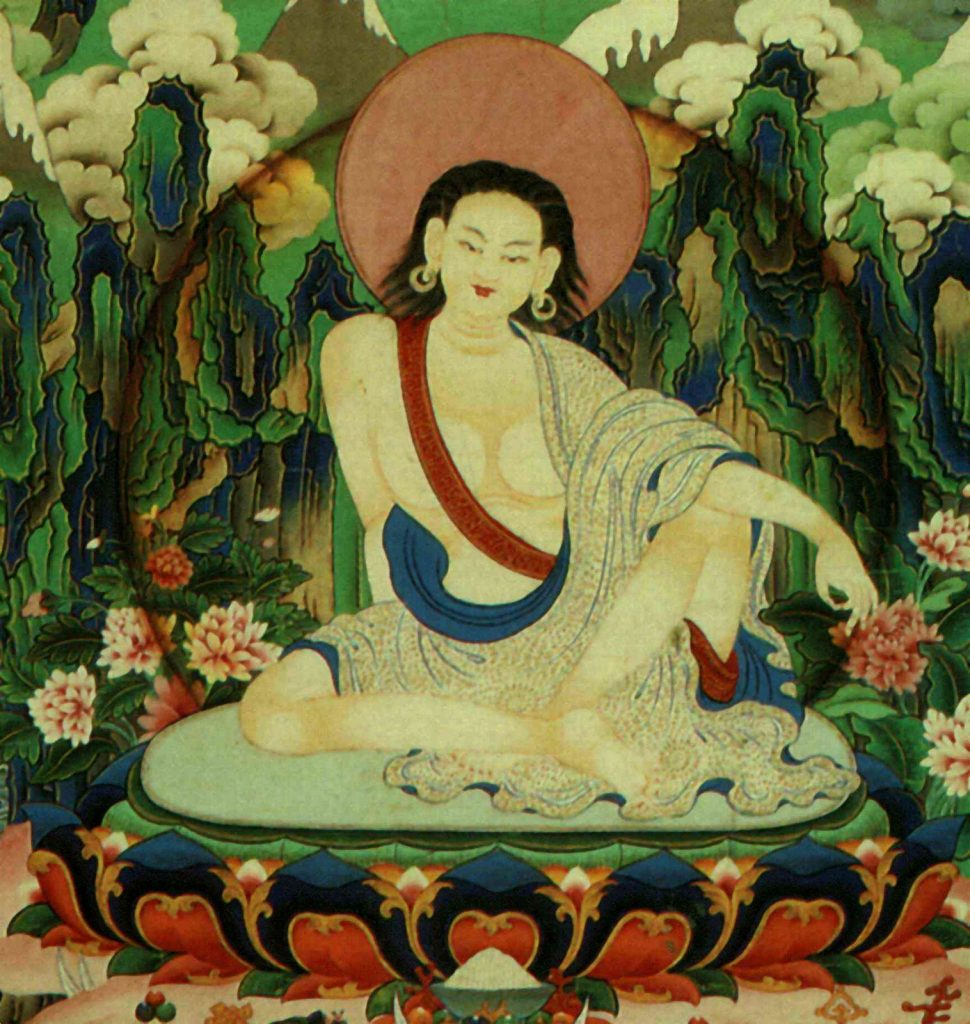
Milarepa (often referred to as Jetsun Milarepa, meaning Milarepa the Revered One) is the central figure of early Tibetan Buddhism. He was a Buddhist saint, a yogi, a sorceror, a trickster, a wanderer, and a poet. He is both folk hero and cultural preceptor, the embodiment of the ideal in Tibetan Buddhism.
The Hundred Thousand Songs of Milarepa, an extensive collection of stories and poetry from the life of Milarepa, is a central text of popular Tibetan Buddhism, in some ways comparable to the Bhagavad Gita in Hinduism and the New Testament within Christianity. His life stories and poetry are read devoutly even today to inspire determination in meditation and spiritual practice.
Milarepa’s father died when he was still a boy, and the land that should have passed to him was seized by relatives who treated the young Milarepa and his mother and sister as slaves. After several years of this cruelty and hard labor, Milarepa’s mother convinced the teenaged boy to study magic with a local sorceror in order to take revenge on their relatives. Milarepa was so successful in this purpose that, it is said, a great hailstorm occurred, destroying the house during a wedding ceremony, killing several members of the family. In the aftermath of this incident, Milarepa felt such guilt for his actions that he vowed to cleanse himself of the evil karma he had accumulated.
In his search for a pure spiritual teacher, Milarepa eventually met his guru, the Buddhist yogi and translator, Marpa, who was himself a disciple of the famous Indian Buddhist master Naropa. Marpa, seeing Milarepa’s great potential mixed with dark karma, put Milarepa through many years of severe trials and tests before he would formally accept Milarepa as a student.
Milarepa then spent several years meditating in seclusion in remote mountain caves, struggling, at times, against the demonic forces of the mind, until he achieved the ultimate enlightenment.
Rejecting the formalism of religious position and the endless squabbles of theological discourse, he adopted the life of a mendicant, traveling from village to village, speaking directly with the people he met, ›› singing spontaneous songs of enlightenment and wisdom.